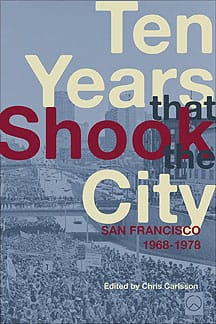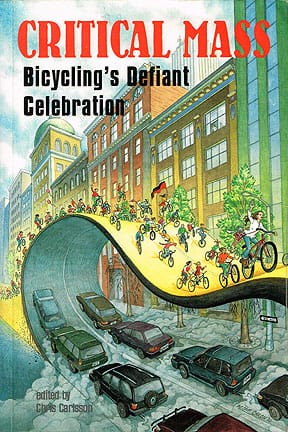The panel on the proposed Global Labour Charter here at the World Social Forum on January 29 demonstrated in stark terms the historic dead-end of trade unionism. The Charter was cautiously embraced by some, dismissed by others, but in any case, has yet to be written by a broad effort (Peter Waterman, who invited me to participate via the New Delhi group CACIM, has a draft with some things you’d expect, like a 6-hour day, 48-week year, Global Labour Rights including right to strike and engage in solidarity actions, a Global Basic Income Grant, a campaign for the defense and extension of Commons and common ownership, and what I liked best, a Global Campaign for Useful Work to deal with useful production, socially-responsible consumption, and environmental sustainability” I’d probably write this a lot more assertively, but at least he had it in there; there were another half dozen points included too.) To be sure, the participants were radical and well-intentioned, but their ideological commitment to their function (negotiators for “labor power” under/within capitalism) blinds them to an epochal opportunity to seize the initiative. If there was ever a time to break with logic of capital, to go on the offensive and to begin a global process of reinventing life itself, this is it! Especially what work we do: workers movements should be leading a redesign of our lives on relocalized and ecological principles of cooperation, generalized abundance, and enjoyable work.
Instead, nearly every speaker yesterday (most of whom were union officials, a preponderant number from metal worker unions for some reason) spoke in clichés about the need to connect as trade unionists with social movements, to organize migrant labor, to bring ignored groups of workers like sex workers into unions, and so on. The South African speaker, the head of the S.A. Communist Party (I think), spoke with a note of bitterness about the lack of solidarity from northern country unions towards southern country unions, especially with regard to neoliberal “free trade” negotiations (e.g. WTO; he noted that many northern trade delegations do not include trade unionists, which the South Africans consider a basic necessity for a coherent negotiation). (He was backed up at length by one of his comrades in the back of the room, who continued the critique of northern unions’ lack of solidarity.) In light of the unfolding global Depression it seemed strangely “yesterday’s news” and in any case, extremely narrow. As global climate change and ecological collapse quicken their pace, quibbling over sectoral and regional biases of various unions seems to miss the point entirely.
There were also speakers from Nepal, Colombia (head of Nat’l. Organization of Indigenous), Belgium, India, South Korea, Norway, Nigeria, and Italy, with about 40+ in attendance from England, Japan, France, Brazil, and some others I didn’t get. So quite a broad representation, which itself was interesting, but the tone of the discussion was terribly disappointing. I admit I chimed in to say that the work we are all doing, globally, is making the mess, and that if we don’t get out front on the reinvention of work, and continue to abdicate to Capital, we can only lose. Some cheered me, I think mostly Italians (hah!) but the conversation didn’t really change direction as I (perhaps arrogantly) thought it might”¦ alas. (I probably wasn’t as compelling as I wanted to be.)
The Int’l Metalworkers Union South Asia representative was one of the more thoughtful contributors, noting that the geography of production has changed, serving to decentralize and informalize work places across the world. He contrasted the growing irrelevance of unions (he didn’t actually characterize them as irrelevant, but his comments indicated an awareness of their diminishing role) with “new” marginal sectors that have used the internet and new communications technologies AND skills to make themselves heard. As he noted, all of society is having the ground disappear beneath their feet, and all existing institutions, to remain relevant, will have to forge new alliances, especially with less formal groups. He also intelligently noted that the old male-dominated trade unionism has not come to grips with the fact that globalization has feminized workplaces everywhere, and that women migrant workers are probably the largest category of unorganized workers. Later, from the audience, another guy from India who Peter Waterman told me represented a Left Union organization that had emerged in recent years, gave a lengthy speech dismissing any notion that trade unions were anything less than crucial institutions as powerful and relevant today as ever, maybe more so. He insisted that everything involving resistance and struggle against capitalism in India for the last 100 years depended first and foremost on trade unions! I was a bit flabbergasted that anyone could make such a claim, since there are countless examples in history of unions being impediments to social struggles, and their ongoing role in disciplining workers to the needs of capital is hardly invisible.
The leader of the Hyundai branch of the South Korean metalworkers union repudiated the tone of nationalism that permeated a lot of comments, but had been holding back the discussion even among these folks going back to 2005. He lamented the slow progress they’d made on efforts to unify their efforts, noting that Capitalism was moving at a much faster speed.
Indeed, the ponderous conversation that went on in the sweltering heat of a classroom in the Prédio Central on the UFRA campus (outside in a nearby tent some kind of New Age/religious ceremony was going on, occasionally emitting loud chanting over which we struggled to be heard), confirmed a sense of missed opportunity. A big broom and a “dustbin of history” seemed to be closing in on the gathering as it concluded”¦ I don’t doubt that many of these individuals will make important contributions to real social struggles in the future, but the framework of their discussion, and their apparently years-long effort to advance the conversation, demonstrated a deeper impotence than anyone there would care to admit. For myself, the urgency of merging conversations about work (labor) and ecology grows stronger, while my patience for blathering bureaucrats and tired old formulas is more or less exhausted.












Just a quick note to say thanks for the great blogs from Brazil and helping
me to keep up with the Forum. This is what news and journalism is all about!